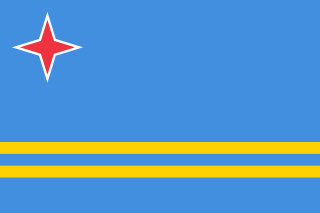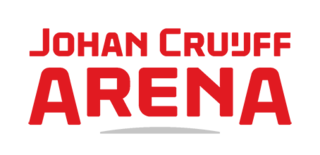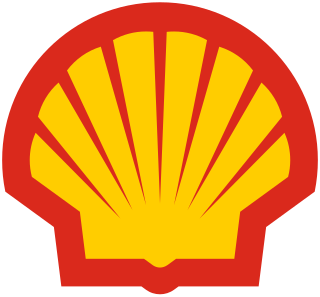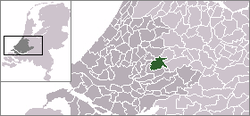
Aruba is an island and a constituent country of the Kingdom of the Netherlands in the southern Caribbean Sea, located about 1,600 kilometres (990 mi) west of the main part of the Lesser Antilles and 29 kilometres (18 mi) north of the coast of Venezuela. It measures 32 kilometres (20 mi) long from its northwestern to its southeastern end and 10 kilometres (6 mi) across at its widest point. Together with Bonaire and Curaçao, Aruba forms a group referred to as the ABC islands. Collectively, Aruba and the other Dutch islands in the Caribbean are often called the Dutch Caribbean.

Flanders is the Dutch-speaking northern portion of Belgium and one of the communities, regions and language areas of Belgium. However, there are several overlapping definitions, including ones related to culture, language, politics and history, and sometimes involving neighbouring countries. The demonym associated with Flanders is Fleming, while the corresponding adjective is Flemish. The official capital of Flanders is Brussels, although the Brussels Capital Region has an independent regional government, and the government of Flanders only oversees the community aspects of Flanders life in Brussels such as (Flemish) culture and education.

The Netherlands Antilles was a constituent country of the Kingdom of the Netherlands. The country consisted of several island territories located in the Caribbean Sea. The islands were also informally known as the Dutch Antilles. The country came into being in 1954 as the autonomous successor of the Dutch colony of Curaçao and Dependencies, and was dissolved in 2010. The former Dutch colony of Surinam, although it was relatively close by on the continent of South America, did not become part of Netherlands Antilles but became a separate autonomous country in 1954. All the island territories that belonged to the Netherlands Antilles remain part of the kingdom today, although the legal status of each differs. As a group they are still commonly called the Dutch Caribbean, regardless of their legal status.

Rotterdam is the second-largest city and a municipality of the Netherlands. It is located in the province of South Holland, at the mouth of the Nieuwe Maas channel leading into the Rhine–Meuse–Scheldt delta at the North Sea. Its history goes back to 1270, when a dam was constructed in the Rotte, after which people settled around it for safety. In 1340, Rotterdam was granted city rights by the Count of Holland.

The Hague is a city on the western coast of the Netherlands and the capital of the province of South Holland. It is also the seat of government of the Netherlands.

There are currently twelve provinces of the Netherlands, representing the administrative layer between the national government and the local municipalities, with responsibility for matters of subnational or regional importance.

Vlist is a village and former municipality in the western Netherlands, in the province of South Holland. As of 2015, it is a part of the municipality of Krimpenerwaard.

The Johan Cruyff Arena is the main stadium of the Dutch capital city of Amsterdam. Built from 1993 to 1996 at a cost equivalent to €140 million, it is the largest stadium in the country. The stadium was previously known as the Amsterdam Arena until the 2018–19 football season, when it was officially renamed in honour of legendary Dutch footballer Johan Cruyff after he died in March 2016.

The Dutch colonial empire comprised the overseas territories and trading posts controlled and administered by Dutch chartered companies and subsequently by the Dutch Republic (1581–1795), and by the modern Kingdom of the Netherlands after 1815. It was initially a trade-based system which derived most of its influence from merchant enterprise and from Dutch control of international maritime shipping routes through strategically placed outposts, rather than from expansive territorial ventures. With a few notable exceptions, the majority of the Dutch colonial empire's overseas holdings consisted of coastal forts, factories, and port settlements with varying degrees of incorporation of their hinterlands and surrounding regions. Dutch chartered companies often dictated that their possessions be kept as confined as possible in order to avoid unnecessary expense, and while some such as the Dutch Cape Colony and Dutch East Indies expanded anyway, others remained undeveloped, isolated trading centres dependent on an indigenous host-nation. This reflected the primary purpose of the Dutch colonial empire: commercial exchange as opposed to sovereignty over homogeneous landmasses.
Dutch people or the Dutch are a Germanic ethnic group native to the Netherlands. They share a common culture and speak the Dutch language. Dutch people and their descendants are found in migrant communities worldwide, notably in Aruba, Suriname, Guyana, Curaçao, Argentina, Brazil, Canada, Australia, South Africa, New Zealand, and the United States. The Low Countries were situated around the border of France and the Holy Roman Empire, forming a part of their respective peripheries, and the various territories of which they consisted had become virtually autonomous by the 13th century. Under the Habsburgs, the Netherlands were organised into a single administrative unit, and in the 16th and 17th centuries the Northern Netherlands gained independence from Spain as the Dutch Republic. The high degree of urbanization characteristic of Dutch society was attained at a relatively early date. During the Republic the first series of large-scale Dutch migrations outside of Europe took place.

Dirk Jan Klaas "Klaas-Jan" Huntelaar, nicknamed The Hunter, is a Dutch professional footballer who plays as a striker for Ajax and the Netherlands national team.

The Battle of the Netherlands was a military campaign part of Case Yellow, the German invasion of the Low Countries and France during World War II. The battle lasted from 10 May 1940 until the surrender of the main Dutch forces on 14 May. Dutch troops in the province of Zeeland continued to resist the Wehrmacht until 17 May when Germany completed its occupation of the whole country.
Dean Warren Couzins is a field hockey player from New Zealand, who earned his first cap for the national team, nicknamed The Black Sticks, in 2001 against Malaysia. The defender played the latter part of 2005 for Dutch club Breda, returning to join the NZ team for the Oceania Cup in November. Dean joined Dutch club SV Kampong in 2006–2007 helping them to a successful first year in the Dutch first league.

The Goejanverwellesluis is a lock in Hekendorp, Netherlands. The 'Goejannen' - the men from the surrounding polders who went to sea - said their last farewells by this channel.

Dutch(Nederlands ) is a West Germanic language spoken by around 23 million people as a first language and 5 million people as a second language, constituting the majority of people in the Netherlands and Belgium. It is the third most widely spoken Germanic language, after its close relatives English and German.

Royal Dutch Shell plc, commonly known as Shell, is a British-Dutch oil and gas company headquartered in the Netherlands and incorporated in the United Kingdom. It is one of the six oil and gas "supermajors" and the fifth-largest company in the world measured by 2018 revenues. Shell was first in the 2013 Fortune Global 500 list of the world's largest companies; in that year its revenues were equivalent to 84% of the Dutch national $556 billion GDP.
Nick Jr. is a Dutch pay television pre-schoolers channel and is part of the Dutch Nickelodeon network. After the transition of Kindernet to Nickelodeon in 2003, Nick Jr. became a program block on Nickelodeon in the morning. Nick Jr. was to launch as a separate channel on 1 January 2005, but due to some capacity problems, it eventually launched a few months later on 1 May.

Flemish (Vlaams) also called Flemish Dutch (Vlaams-Nederlands), Belgian Dutch, or Southern Dutch (Zuid-Nederlands), is a Lower Franconian / Dutch dialect. It is spoken in the whole northern region of Belgium as well as French Flanders and the Dutch Zeelandic Flanders by approximately 6.5 million people. The term is used in at least five ways. These are:
- as an indication of Dutch written and spoken in Flanders including the Dutch standard language as well as the non-standardized dialects, including intermediate languages between dialect and standard. Some linguists avoid the term Flemish in this context and prefer the designation Belgian-Dutch or South-Dutch.
- as a synonym for the so-called intermediate language in Flanders region, the Tussentaal.
- as an indication for the non-standardized dialects and regiolects of Flanders region.
- as an indication of the non-standardized dialects of only the former County of Flanders, ie the current provinces of West Flanders and East Flanders, Zeelandic Flanders and Frans-Vlaanderen.
- as an indication of the non-standardized West Flemish dialects of the province of West Flanders, the Dutch Zeelandic Flanders and French Frans-Vlaanderen.

TMF Dance was a digital theme channel part of MTV Networks Benelux.




















